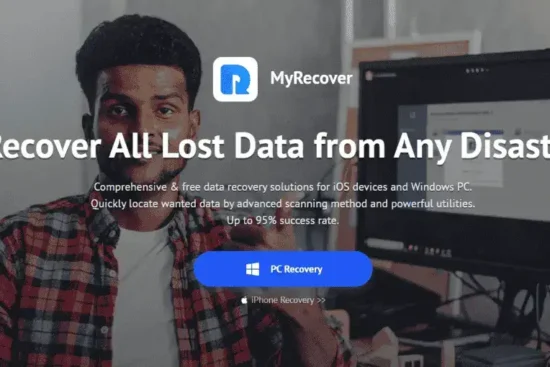
In today’s digital age, social media has become an integral part of our lives. From sharing our daily experiences to connecting with like-minded individuals, social media platforms have transformed the way we interact with each other. However, social media is not just limited to personal use. In fact, it has become an essential tool for businesses to reach out to their target audience and promote their products and services.
Social media marketing is the process of using social media platforms such as Facebook, Instagram, Twitter, and LinkedIn to promote a brand’s products or services. It involves creating content, engaging with the target audience, and measuring the results of the marketing efforts. In this article, we will explore the various social media marketing uses and how businesses can leverage social media to grow their business.

Pros and Uses of Social Media Marketing:
Social media marketing has become an indispensable tool for businesses to reach out to their target audience and promote their products and services. In this section, we will explore the pros and uses of social media marketing in points:
Pros:
- Increased brand visibility: By creating a strong social media presence, businesses can reach out to a wider audience and increase their brand visibility.
- Cost-effective: Social media marketing is often more cost-effective than traditional advertising methods, enabling businesses to reach out to a large audience with minimal investment.
- Customer engagement: Social media provides businesses with a platform to engage with their customers, creating a loyal customer base that is more likely to recommend the brand to others.
- Lead generation: Social media can be an effective tool for lead generation, enabling businesses to attract potential customers to their website and convert them into leads.
- Sales: Social media can be used to drive sales by promoting products or services to a wider audience.
- Customer retention: Social media marketing can help businesses retain their existing customers by consistently engaging with them and providing them with valuable content.
- Reputation management: Social media can be used for reputation management by monitoring social media mentions and addressing negative feedback promptly.
- Market research: Social media can be used for market research by gathering insights into the target audience’s preferences, pain points, and behavior.

Uses:
- Brand awareness: Businesses can use social media to build brand awareness by consistently sharing high-quality content and leveraging the power of hashtags.
- Customer engagement: Social media provides businesses with a platform to engage with their customers, respond to comments, address queries, and resolve issues.
- Lead generation: Social media can be used for lead generation by creating targeted ads and promoting them to the right audience.
- Sales: Social media can be used to drive sales by promoting products or services to a wider audience and showcasing them in action.
- Customer retention: Social media marketing can help businesses retain their existing customers by consistently engaging with them and providing them with exclusive deals and discounts.
- Reputation management: Social media can be used for reputation management by monitoring social media mentions, addressing negative feedback promptly, and showcasing positive reviews and testimonials.
- Market research: Social media can be used for market research by monitoring social media conversations and gathering insights into the target audience’s preferences, pain points, and behavior.
In conclusion, social media marketing has numerous pros and uses for businesses. By consistently creating high-quality content, engaging with their target audience, and measuring the results of their marketing efforts, businesses can leverage the power of social media to grow their business and stay ahead of the competition.
1. Brand Awareness:(Social Media Marketing Uses)
Social media marketing offers a major advantage to businesses in building brand awareness. With a strong social media presence, businesses can expand their reach to a larger audience and improve their brand visibility. This can be achieved by sharing high-quality content regularly, interacting with the target audience, and utilizing hashtags to amplify the reach of the content.
To create brand awareness, businesses can also focus on building a website that reflects their brand image and values. The website should be user-friendly and visually appealing, with clear messaging and easy navigation. Search engine optimization (SEO) can also be used to increase website traffic and improve the website’s ranking on search engines.

Another effective way to build brand awareness is through content marketing. By creating valuable and informative content that resonates with the target audience, businesses can establish themselves as industry experts and increase their brand recognition. This content can be in the form of blog posts, videos, infographics, and social media posts.
Additionally, businesses can utilize email marketing to reach out to their audience and keep them engaged. By sending personalized and relevant emails to subscribers, businesses can build a strong relationship with their customers and improve their brand loyalty.
Overall, building brand awareness requires consistent effort and a multi-channel approach. By utilizing social media marketing, website development, content marketing, and email marketing, businesses can establish a strong brand identity and reach out to a wider audience.
2. Customer Engagement:(Social Media Marketing Uses)
Social media marketing also enables businesses to connect and engage with their customers. By actively responding to comments, addressing questions, and resolving issues, businesses can establish a loyal customer base that is more likely to recommend the brand to others. Furthermore, social media provides a bi-directional communication channel, allowing businesses to collect feedback from their customers and enhance their products and services.
To maximize customer engagement on social media, businesses should regularly post relevant and high-quality content that resonates with their audience. This content can include promotions, news, user-generated content, and behind-the-scenes glimpses of the brand’s operations.

In addition, businesses should actively monitor their social media accounts and respond to comments and queries in a timely and personalized manner. This helps build trust with the customers and shows that the brand values their feedback and opinions.
Another way to engage with customers is by conducting social media polls and surveys to collect feedback on their preferences, needs, and opinions. This can help businesses tailor their products and services to better suit the needs of their target audience.
Overall, social media provides a valuable platform for businesses to connect with their customers and build a strong relationship. By sharing relevant content, responding to comments, and gathering feedback, businesses can create a loyal customer base that supports their brand and drives business growth.
3. Lead Generation:(Social Media Marketing Uses)
Indeed, social media can be a powerful tool for lead generation. By leveraging the data and insights available on social media platforms, businesses can create targeted ads that reach a specific audience based on demographics, interests, and behaviors.
To effectively generate leads on social media, businesses should create compelling ads that offer a clear value proposition and call to action. The landing pages should be optimized to encourage visitors to take the desired action, such as filling out a form or subscribing to a newsletter.

In addition, businesses can use social media to connect with other professionals and businesses in their industry. This can be done through LinkedIn groups and communities, where businesses can share knowledge and expertise, and engage with potential leads.
To further optimize lead generation on social media, businesses should track and analyze their campaigns regularly to identify areas for improvement. This can help them refine their targeting, messaging, and ad creative to increase conversion rates and ROI.
Overall, social media provides businesses with a powerful platform to generate leads and expand their network. By creating targeted ads, optimizing landing pages, and connecting with other professionals, businesses can attract potential customers and drive business growth.
4. Sales:(Social Media Marketing Uses)
Certainly, social media can be an effective channel for driving sales. By creating compelling content and promoting products or services on social media, businesses can increase their brand visibility and reach a wider audience, ultimately driving sales.
To maximize sales on social media, businesses should create high-quality content that showcases their products or services in an engaging and informative way. This can include photos, videos, and user-generated content that highlights the unique features and benefits of the product or service.

In addition, businesses can utilize social media advertising to reach a targeted audience and drive sales. Social media platforms provide robust targeting options, allowing businesses to target users based on their interests, demographics, and behaviors, increasing the likelihood of conversion.
Businesses can also leverage social media to encourage repeat purchases and build customer loyalty. This can be done by offering special promotions, providing exclusive content, and engaging with customers in a personalized and authentic way.
Overall, social media provides businesses with a powerful tool for driving sales and increasing revenue. By creating engaging content, leveraging social media advertising, and building customer loyalty, businesses can successfully use social media to drive sales and achieve business growth.
5. Customer Retention:(Social Media Marketing Uses)
Absolutely, social media can be a valuable tool for retaining existing customers. By consistently engaging with customers and providing them with valuable content, businesses can build a strong relationship and foster customer loyalty.
To effectively retain customers on social media, businesses should provide relevant and helpful content that addresses their needs and interests. This can include product tutorials, industry insights, and behind-the-scenes glimpses of the brand’s operations.
In addition, businesses can use social media to offer exclusive deals and discounts to their followers. This helps incentivize customers to stay engaged with the brand and make repeat purchases, ultimately increasing customer lifetime value.

Businesses can also leverage social media to gather feedback from customers and improve their products and services. By actively monitoring their social media accounts and responding to comments and messages in a timely and personalized manner, businesses can show that they value customer feedback and are committed to providing excellent customer service by this mean you can say a good Social Media Marketing Uses.
Overall, social media provides businesses with a powerful platform for retaining existing customers and fostering customer loyalty. By providing valuable content, offering exclusive deals and discounts, and gathering feedback from customers, businesses can build a strong and loyal customer base that supports their brand and drives business growth.
6. Reputation Management:(Social Media Marketing Uses)
Absolutely, social media can be a valuable tool for reputation management. With millions of users active on social media platforms every day, it is essential for businesses to monitor and manage their social media presence to maintain a positive brand image.
To effectively manage their reputation on social media, businesses should actively monitor their social media accounts and respond to any negative feedback promptly and professionally. By acknowledging customer concerns and addressing them in a timely and empathetic manner, businesses can show that they care about their customers and are committed to providing excellent customer service.

In addition, businesses can leverage social media to showcase their positive reviews and testimonials. By sharing positive customer experiences and highlighting the unique features and benefits of their products or services, businesses can enhance their brand reputation and attract new customers.
Moreover, businesses can use social media to engage with their customers and create a personalized and authentic brand image. By sharing behind-the-scenes glimpses of their operations and showing their commitment to social responsibility, businesses can build trust with their customers and strengthen their brand reputation that are Social Media Marketing Uses and can grow more effectively.
Overall, social media provides businesses with a powerful tool for reputation management. By monitoring social media mentions, addressing negative feedback, showcasing positive reviews, and engaging with customers, businesses can maintain a positive brand image and drive business growth.
7. Market Research:(Social Media Marketing Uses)
Absolutely, social media can be a valuable tool for market research. With millions of users actively engaging in conversations on social media platforms, businesses can gain valuable insights into their target audience’s preferences, pain points, and behavior.
To effectively use social media for market research, businesses should monitor conversations related to their industry, products, or services. This can be done through social media listening tools or by manually searching relevant keywords and hashtags.

By analyzing social media conversations, businesses can gather insights into their target audience’s opinions, preferences, and behaviors. For example, businesses can identify the most common customer complaints and pain points, as well as the features and benefits that customers appreciate the most that are one of the Social Media Marketing Uses.
This information can be used to improve products and services, create targeted marketing campaigns, and stay ahead of the competition. By understanding their target audience’s needs and preferences, businesses can tailor their offerings to better meet customer demands and ultimately drive business growth.
Overall, social media provides businesses with a powerful tool for market research. By monitoring social media conversations and gathering insights into their target audience’s preferences, pain points, and behavior, businesses can make informed decisions and stay ahead of the competition.
Conclusion:
In conclusion, social media marketing has become an essential tool for businesses to grow their business. By leveraging the various social media marketing uses, businesses can build brand awareness, engage with customers, generate leads, drive sales, retain customers, manage their reputation, and conduct market research.
However, it is important to note that social media marketing requires a consistent and strategic approach to yield results. By creating high-quality content, engaging with the target audience, and measuring
For Social media marketing you can contact the best social media marketing agency and also see our blog for more details.




Leave a Reply
You must be logged in to post a comment.